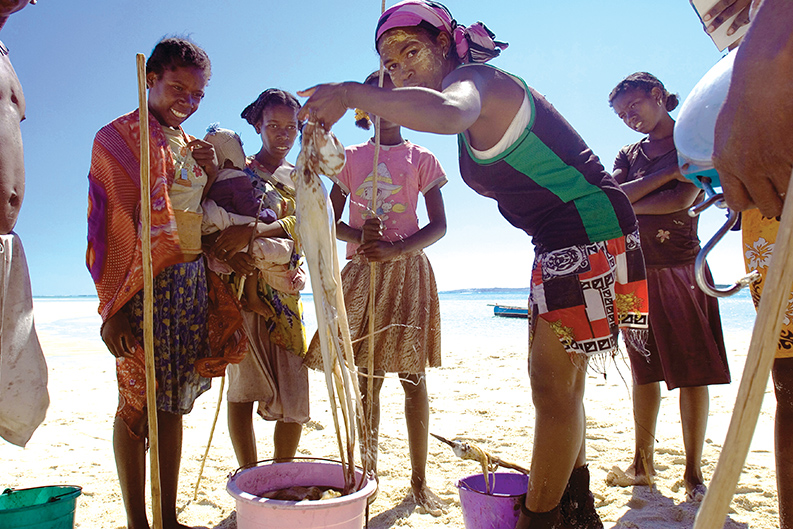Dr Amadou Tall is a former member of the MSC’s Technical Advisory Board. His vision is to see the MSC boost its presence in Africa and other developing regions as he believes there is now a political will to manage such resources responsibly.
How would you describe your time on the MSC Technical Advisory Board?
One of the first things I learnt on the Technical Advisory Board (TAB) was that there are lots of acronyms [laughs]. At a later stage I contributed along with colleagues to the MSC Chain of Custody Standard, including DNA testing. I also worked on the question of how to certify fisheries in Africa, where there are many artisanal fisheries. During my tenure I’ve had many proud moments. However, the highlights for me will be when we concluded the MSC Chain of Custody Standard review and when the MSC and the African Union InterAfrican Bureau of Animal Resources decided to work together.
Is sustainability an option for poorer nations such as you’d find on the African continent?
Yes, political will at continental and national levels is proof that Africa is ready. For example, fish-rich nations like Senegal decided that open access– where fishing had no limits – is no longer an option. Other African fisheries are being funded to better manage and protect their marine resources.
How would you describe the sustainable fisheries situation in Africa?
Africa wants and is working towards sustainable fisheries just as developed countries are. Initiatives like the Aid for Trade program, EU-ACP partnership and USAID program are examples of development partners’ support for the continent’ sustainable future.
I am happy to have participated in the drafting of the Policy Framework and Reform Strategy of the Fisheries and Aquaculture in Africa (PFRS). This program is endorsed by the Head of States and Governments. Today, the parameters, criteria and indicators that will align national policies to continental PFRS are in progress.
Among the components of this framework are: fisheries and aquaculture governance, monitoring, control and surveillance; combatting illegal, unregulated and unreported fishing (IUU); ecolabelling and marketing; and trade of safe fish products to contribute sustainably to food and nutrition security.
What do you think can be done to boost fisheries’ engagement with sustainability?
The industry is quite aware that without sustainable management of fishery resources their business will be compromised. However, the cost of certification has always been one of the constraints. If there is anything that can be done about this, it will mean a lot to fisheries.
Another thing for me will be for the MSC to better communicate its achievements over the last 20 years – the good things that have happened during this period. There is a need to better communicate about the MSC ecolabel, to help change people’s perceptions.
So how can the MSC program be more effective in Africa and the developing world?
I am sure that the collaboration between the African Union’s Inter African Bureau of Animal Research (AU/IBAR), the New Partnership for Africa’s Development (NEPAD) and the MSC will be important in increasing sustainable fisheries programmes in Africa. The same approach with INFOPECHE, INFOPESCA and INFOFISH in Latin America and Asia respectively will boost the MSC’s presence in these regions. The members of the MSC Developing World Working Group and other stakeholders are also very important in making this a reality.
It’s time for the MSC to scale up in developing countries
One in 10 people rely on seafood for their livelihood. This is more evident in developing countries. Fish is extremely nutritious and is a vital source of protein and essential nutrients for many of the world’s poor– it is a source not just of health, but also of wealth. The fisheries sector is a major contributor to the GDP of many.
Increasingly, many developing nations are embracing the fact that without sustainable fishing, the source of their livelihood could be extinct.
Dr Tall believes that to boost the efficiency and effectiveness of fisheries in developing nations, MSC must scale up its presence in the region to encourage sustainable fishing.

